

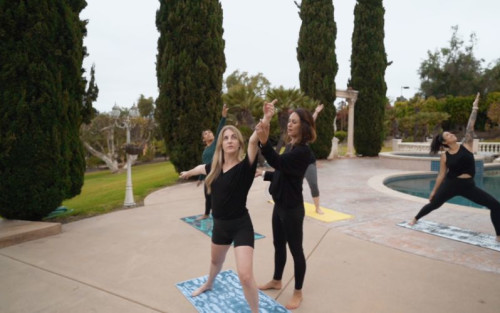
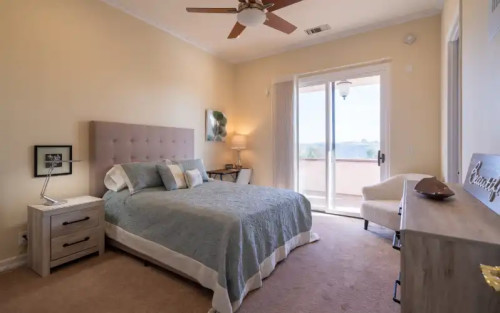





Villa Oasis San Diego
Verified Center
This provider's information has been quality-checked by Recovery.com's Research Team for accuracy and completeness, including center verification through appropriate third-party organizations.
Treatment Focus
This center treats substance use disorders and co-occurring mental health conditions. Your treatment plan addresses each condition at once with personalized, compassionate care for comprehensive healing.
Primary Level of Care
Offering intensive care with 24/7 monitoring, residential treatment is typically 30 days and can cover multiple levels of care. Length can range from 14 to 90 days typically.
Treatment Focus
This center treats substance use disorders and co-occurring mental health conditions. Your treatment plan addresses each condition at once with personalized, compassionate care for comprehensive healing.
Primary Level of Care
Offering intensive care with 24/7 monitoring, residential treatment is typically 30 days and can cover multiple levels of care. Length can range from 14 to 90 days typically.
Provider's Policy
Villa Oasis San Diego works with most PPO insurance plans which can cover 100% of treatment after deductibles. Our insurance experts provide a free, confidential benefit verification so you have a clear picture of what the costs of treatment would be at our facility and how to maximize your insurance benefits. Please call to discuss insurance options and payment plans.
Villa Oasis San Diego
Villa Oasis San Diego
About Villa Oasis San Diego
Villa Oasis San Diego offers private and professional clinical support for clients with substance use and co-occurring mental health disorders, designed to support lasting, fulfilling sobriety. Within an exclusive and safe environment, the program delivers an authentic, humanistic treatment experience through a strict 1:1 client-to-therapist ratio. Villa Oasis serves people who value privacy, structure, and depth, including professionals balancing recovery with real-world responsibilities.
Collaborate with a Dedicated Clinical Team
Villa Oasis shapes treatment through close collaboration between each client and a dedicated clinical team. Frequent 1:1 counseling sessions allow therapists to address substance use alongside underlying mental health patterns that often drive relapse. The program provides medical oversight, psychiatric care, and medication-assisted treatment (MAT) when appropriate. Experiential modalities like equine therapy, yoga, and hike therapy help clients build emotional awareness, regulation, and long-term stability.
Sustain Energy and Focus During Treatment
Clients live in a refined residential setting designed to support daily structure and consistency. An award-winning personal chef prepares nutritionally balanced meals daily using high-quality ingredients, supporting physical restoration and consistent energy. After 72 hours of detox, clients may use approved phones and laptops, making Villa Oasis a strong fit for professionals who require limited, structured connectivity.
Maintain Progress with Structured Planning
Villa Oasis begins planning for continued recovery early in treatment, with a focus on sustained sobriety beyond residential care. The team works directly with clients to coordinate ongoing therapy, psychiatric follow-up, and recovery resources aligned with personal and professional goals. Discharge planning emphasizes clarity, continuity, and realistic next steps that support long-term success.

Highlights from the Center
Highlights
These highlights are provided by and paid for by the center.
Perfect for Professionals
Medically Assisted Detox
Private Rooms Available
Tech Friendly
Center Overview
Treatment Focus
This center treats substance use disorders and co-occurring mental health conditions. Your treatment plan addresses each condition at once with personalized, compassionate care for comprehensive healing.
Joint Commission Accredited
The Joint Commission accreditation is a voluntary, objective process that evaluates and accredits healthcare organizations (like treatment centers) based on performance standards designed to improve quality and safety for patients. To be accredited means the treatment center has been found to meet the Commission's standards for quality and safety in patient care.
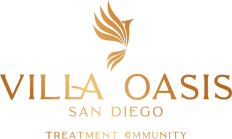
Villa Oasis San Diego
Insurance Accepted
Cash Pay Rates
Estimated Cash Pay Rate
Center pricing can vary based on program and length of stay. Contact the center for more information. Recovery.com strives for price transparency so you can make an informed decision.




Recovery.com Verified Listing
Recovery.com verified that the name, location, contact information and license to operate for this treatment provider are valid and up-to-date.

Licensed by California DHCS

Joint Commission Accredited
Recovery.com is an independent, third-party mental health resource. Verification does not imply endorsement and does not guarantee the quality of treatment services.
Meet Your Care Team

Christian Small
Medical Director
M.D

Jesse Cook
Program Director
LVN

Jules Baldwin-Cooper
IMS Supervisor
EMT, RADT
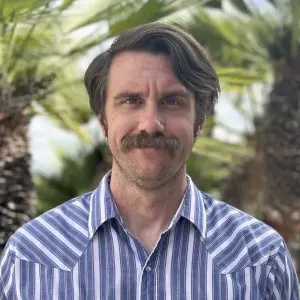
Chris Schmidt
Lead Counselor
CADC, LMFT
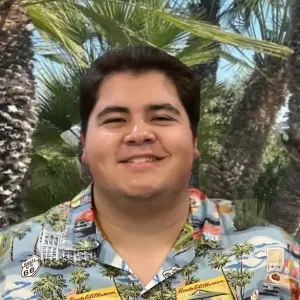
Tyler Tran
EMT
RADT
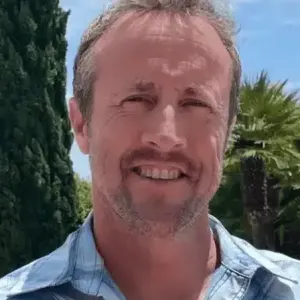
Sean Scanlon
Counselor, Alumni, Coordinator, Outreach Specialist
RADT
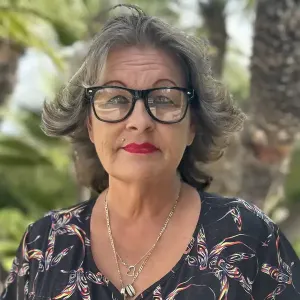
Marjorie Mendoza
Environmental Services Technician
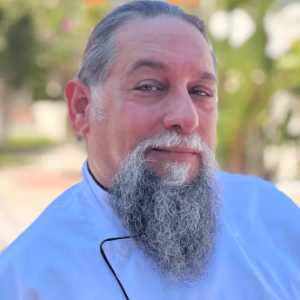
Andrew Salsoe
Executive Chef
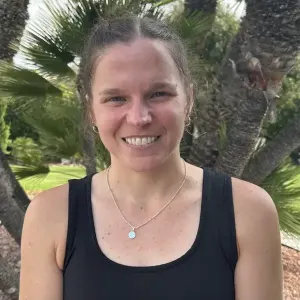
Michelle Beaupre
Clinical Director
PhD, LCSW
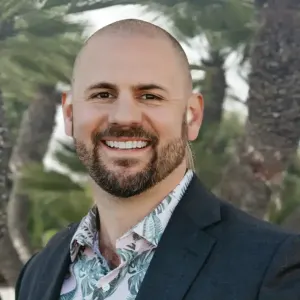
Daniel Jimmerson
IOP Cliinical Director
LPCC, CADC
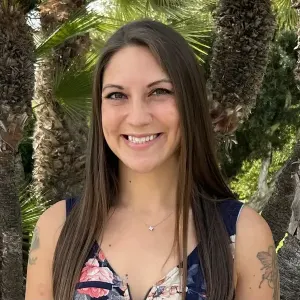
Tiffany Velarde
Operations Manager
RADT

Valentina L. Hughes
Counselor
MS, SUDCC IV
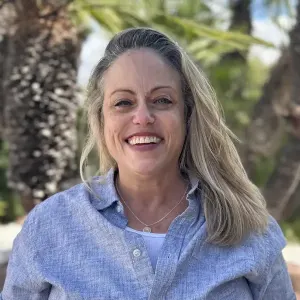
Kelly Mahon
Counselor
RADT, AODS, AA
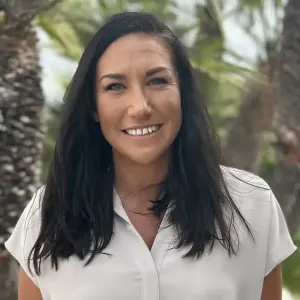
Jessica Mowbray
Counselor
RADT
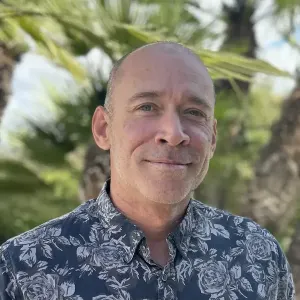
Charles Acosta
Substance Abuse Treatment Specialist, Musician
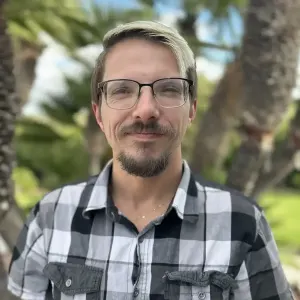
Vladimir Staples
Counselor
RADT
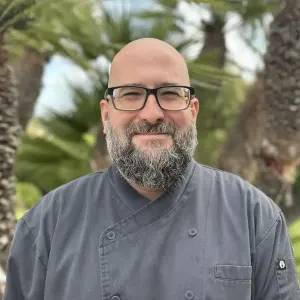
Curtis Gaare
Chef
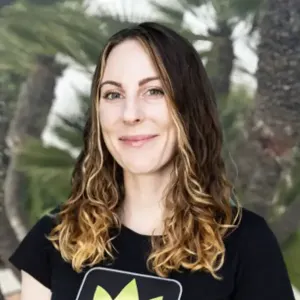
Anna Aguirre
Yoga Instructor
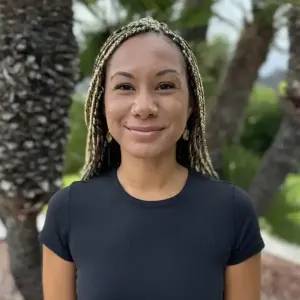
Amy Laroche
Yoga Instructor
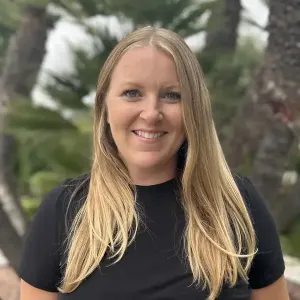
Stephanie Pyle
Massage Therapist
Your Care Options
Specializations
Alcohol
Using alcohol as a coping mechanism, or drinking excessively throughout the week, signals an alcohol use disorder.
Co-Occurring Disorders
A person with multiple mental health diagnoses, such as addiction and depression, has co-occurring disorders also called dual diagnosis.
Holistic
A non-medicinal, wellness-focused approach that aims to align the mind, body, and spirit for deep and lasting healing.
Medication-Assisted Treatment
Combined with behavioral therapy, prescribed medications can enhance treatment by relieving withdrawal symptoms and focus patients on their recovery.
Prescription Drugs
It's possible to abuse any drug, even prescribed ones. If you crave a medication, or regularly take it more than directed, you may have an addiction.
Professionals
Busy, high-ranking professionals get the personalized treatment they need with greater accommodations for work, privacy, and outside communication.
Trauma
Some traumatic events are so disturbing that they cause long-term mental health problems. Those ongoing issues can also be referred to as "trauma."
Who We Treat
Executives
Executive treatment programs typically directly support the needs of people who manage businesses and may provide flexible schedules and office space to allow work during treatment.
Men and Women
Men and women attend treatment for addiction in a co-ed setting, going to therapy groups together to share experiences, struggles, and successes.
Professionals
Busy, high-ranking professionals get the personalized treatment they need with greater accommodations for work, privacy, and outside communication.
Treatment Services
Detox
Detox fully and safely removes toxic substances from the body, allowing the next steps in treatment to begin with a clean slate.
Residential
In a residential rehab program, patients live onsite, with access to daily treatment and 24-hour care. An average stay is 30-90 days.
Approaches
Evidence-Based
A combination of scientifically rooted therapies and treatments make up evidence-based care, defined by their measured and proven results.
Holistic
A non-medicinal, wellness-focused approach that aims to align the mind, body, and spirit for deep and lasting healing.
Personalized Treatment
The specific needs, histories, and conditions of individual patients receive personalized, highly relevant care throughout their recovery journey.
Therapeutic Community
Therapeutic communities allow patients to contribute to the success and progress of their community, through healthy behaviors or even basic chores.
Therapies
1-on-1 Counseling
Patient and therapist meet 1-on-1 to work through difficult emotions and behavioral challenges in a personal, private setting.
Trauma-Specific Therapy
This form of talk therapy addresses any childhood trauma at the root of a patient's current diagnosis.
Animal Therapy
Animals can inspire trust and self-worth. In this experiential therapy, guided interactions are used to improve social skills and emotion regulation.
Equine Therapy
Guided interactions with trained horses, their handler, and a therapist can help patients improve their self-esteem, trust, empathy, and social skills.
Expressive Arts
Creative processes like art, writing, or dance use inner creative desires to help boost confidence, emotional growth, and initiate change.
Family Therapy
Family therapy addresses group dynamics within a family system, with a focus on improving communication and interrupting unhealthy relationship patterns.
Conditions We Treat
Schizophrenia
Schizophrenia is a serious mental health condition that causes hallucinations, delusions, and disordered thinking.
Grief and Loss
Grief is a natural reaction to loss, but severe grief can interfere with your ability to function. You can get treatment for this condition.
Personality Disorders
Personality disorders destabilize the way a person thinks, feels, and behaves. If untreated, they can undermine relationships and lead to severe distress.
ADHD, ADD
ADHD is a common mental health condition caused by dopamine imbalance. Common symptoms include inattention, hyperactivitiy, and impulsivity.
Anger
Although anger itself isn't a disorder, it can get out of hand. If this feeling interferes with your relationships and daily functioning, treatment can help.
Anxiety
Anxiety is a common mental health condition that can include excessive worry, panic attacks, physical tension, and increased blood pressure.
Bipolar
This mental health condition is characterized by extreme mood swings between depression, mania, and remission.
Depression
Symptoms of depression may include fatigue, a sense of numbness, and loss of interest in activities. This condition can range from mild to severe.
Substances We Treat
Alcohol
Using alcohol as a coping mechanism, or drinking excessively throughout the week, signals an alcohol use disorder.
Benzodiazepines
Benzodiazepines are prescribed to treat anxiety and sleep issues. They are highly habit forming, and their abuse can cause mood changes and poor judgement.
Chronic Relapse
Consistent relapse occurs repeatedly, after partial recovery from addiction. This condition requires long-term treatment.
Co-Occurring Disorders
A person with multiple mental health diagnoses, such as addiction and depression, has co-occurring disorders also called dual diagnosis.
Cocaine
Cocaine is a stimulant with euphoric effects. Agitation, muscle ticks, psychosis, and heart issues are common symptoms of cocaine abuse.
Drug Addiction
Drug addiction is the excessive and repetitive use of substances, despite harmful consequences to a person's life, health, and relationships.
Ecstasy
Ecstasy is a stimulant that causes intense euphoria and heightened awareness. Abuse of this drug can trigger depression, insomnia, and memory problems.
Heroin
Heroin is a highly addictive and illegal opioid. It can cause insomnia, collapsed veins, heart issues, and additional mental health issues.
Psychedelics
Hallucinogenic drugs—like LSD—cause euphoria and increased sensory experiences. When abused, they can lead to depression and psychosis.
Languages
Aftercare
Care Designed for Your Needs
Personal Amenities
Amenities
Special Considerations
Executive Program
Addiction and mental health treatment for executives typically involves high discretion, greater technology access, and more private, 1-on-1 care.
Flexible technology policies
Centers with flexible technology policies allow professionals to stay in touch with work and give patients a greater sense of connection and normalcy.
Healthy Meals are provided
Great food meets great treatment, with providers serving healthy meals to restore nutrition, wellbeing, and health.
Activities
Yoga
Yoga is both a physical and spiritual practice. It includes a flow of movement, breathing techniques, and meditation.
Off-Site Activities
Off-Site Amenities
Learn More About the Center
What to Expect at a Luxury Rehab Center: A Day in the Life
Gain insight into how structure, privacy, and comfort shape daily life in luxury rehab.
Executive Recovery: Overcoming Cocaine Addiction While Maintaining Your Career
Explore how high-achieving professionals balance career demands while engaging in focused cocaine recovery.
Co-Occurring Statistics – Substance Abuse & Mental Health
Understand key statistics revealing how mental health and substance use disorders commonly intersect.
How Using Expressive Art Therapy Can Aid in the Recovery Process
Discover how expressive art therapy supports emotional processing and healing during addiction recovery.
What people are saying
Treatment
4.9
Accommodations
4.9
Food & Nutrition
5.0
Value
4.8
Pros
- Treated With Respect (26)
- Beautiful Location (25)
- Excellent & Effective Treatment Programming (25)
- Friendly & Competent Staff (25)
Andrew E
Treatment in 2024 • (30 days) • Reviewed 04/16/24
Former Client
•Accountant
•Arizona
Noah Morris
Treatment in 2023 • (30 days) • Reviewed 06/12/23
Former Client
•Student
•USA
George
Treatment in 2023 • (30 days) • Reviewed 05/30/23
Former Client
•Student
•San Diego
Dayna C.
Treatment in 2023 • (30 days) • Reviewed 01/27/23
Former Client
•Program Director
•Orange County
Ken
Treatment in 2024 • (5 days) • Reviewed 01/18/24
Former Client
•Semi retired and working on home remodel





